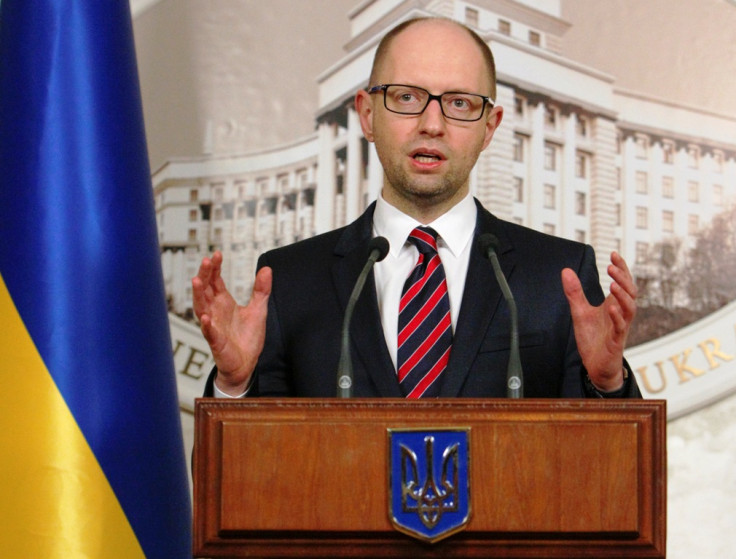IMF to pump $10bn into war-torn Ukraine over the next year

The International Monetary Fund (IMF) has agreed to inject $10bn (£6.69bn, €9.49bn) into Ukraine's war-torn economy over the next year, as part of a larger four-year bailout.
The IMF board on 11 March approved a loan of $17.5bn, with the bulk of the funds heading out the door soon, while $5bn would be released by the end of this week and another $5bn in coming months, IMF officials said.
That will be combined with $7.5bn in loans from other international organisations and an expected $15.4bn in debt relief that Kiev hopes to negotiate with bondholders.
IMF managing director Christine Lagarde said in Berlin that the rescue package "is very strongly front-loaded during the first year".
The bailout aims to provide what Lagarde referred to as "immediate economic stabilization", Reuters reported.
Ukraine's Prime Minister Arseny Yatseniuk said the IMF programme's impact should be felt quickly in his country that has been struggling with balance-of-payments problems and a plunging currency.
The IMF also said that Ukraine's embattled economy should grow 2% in 2016 after a contraction of about 5.5% this year, and that by end-2015, Kiev should have enough reserves to cover about three months of imports.
Lagarde commented: "Ukraine has satisfied all the prior actions that were expected and required of it in order to start running the program. ... We are off to a good start."
Yatseniuk said in a televised statement that the programme "will enable us to stabilize the economy and the financial sector. It will be used to stabilize the currency. It will enable the Ukrainian economy to grow from 2016."
White House spokesman Josh Earnest, welcoming the Fund's action, said: "The US is working alongside international partners to provide Ukraine with the financial support it needs as it continues to take steps that will transform the Ukrainian economy and strengthen its democracy."
A year of war and political turmoil has hit Ukraine's economy, with a currency climbing slowly from record lows, the highest interest rates in 15 years, and central bank reserves of $6.4bn, just about enough to cover five weeks of imports.
Battered economy
Ukraine's GDP plunged 15.2% year-on-year in the fourth-quarter of 2014, official data showed on 17 February.
The GDP fell by 3.8% from the third quarter, according to data from the Ukrainian statistics service.
The data excluded the Crimean peninsula, annexed by Russia, and areas where military operations were under way, the statistics office said.
The year-long war with Russian rebels calmed somewhat following a cease-fire agreement signed in the Belarusian capital of Minsk on 12 February.
The IMF last year approved a $17bn, two-year loan to Ukraine, but then deemed that as insufficient.
© Copyright IBTimes 2025. All rights reserved.






















